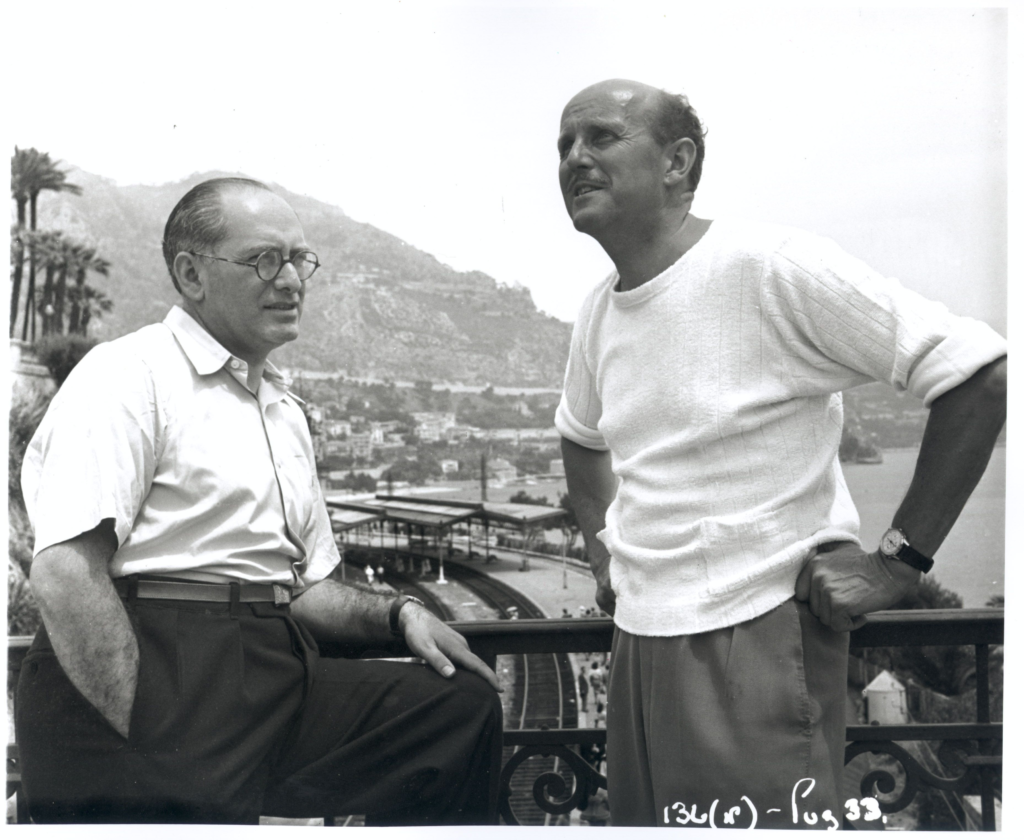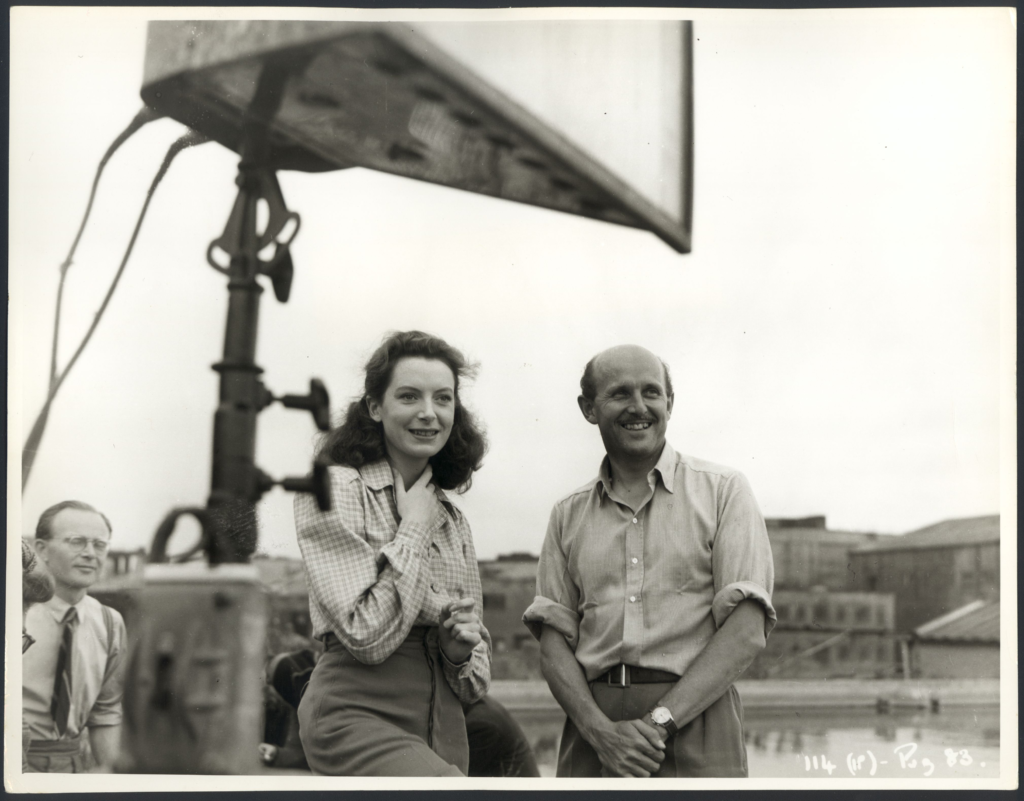Director: David Hinton
Stars: Martin Scorsese, Michael Powell, Emeric Pressburger
Synopsis: Martin Scorsese reflects on the influence of filmmakers Michael Powell and Emeric Pressburger, whose decades-long collaboration led to a series of classics that made the duo a crucial part of British cinema.
When Martin Scorsese charted his early filmgoing escapades in 1995’s A Personal Journey with Martin Scorsese Through American Movies, he structured said journey by splitting films from the directors he highlighted into four categories. There was the director as a storyteller, in which Scorsese focused on Westerns, gangster films, and musicals; as an illusionist, a la D.W. Griffith and F. W. Murnau; as a smuggler, like Douglas Sirk, Samuel Fuller, and Vincente Minnelli, filmmakers who hid subversive messages in their works; and as an iconoclast, filmmakers who take aim at social conventions, including Charlie Chaplin, Orson Welles, Elia Kazan, and Stanley Kubrick.

The aforementioned filmmakers are all icons, each one deserving of their own individual retrospectives. But it’s fitting that the two men Scorsese has championed the most over the years, Michael Powell and Emeric Pressburger, are the first to receive such treatment from the man himself in the form of David Hinton’s Made in England: The Films of Powell & Pressburger. Scorsese narrates a sprawling history of the duo’s collaboration as he viewed it: with enthusiasm and adoration. His singular connection to Powell & Pressburger’s work turns what might otherwise serve as a by-the-numbers documentary about a legendary filmography into a far more personal tour through an inimitable yet influential body of work. And sure, it helps that Scorsese just so happens to be one of the seminal filmmakers of his generation, if not le grand fromage; all the more reason to enjoy the journey.
For many viewers, that journey may be an uncharted one. Though The Red Shoes will undoubtedly set off alarm bells for most Criterion Channel subscribers, most films from The Archers — Powell and Pressburger’s production company — initially spent years shrouded from mainstream attention. That wasn’t the case for Scorsese, who first caught their work on a colorless television set that dilapidated the pure beauty of Powell and Pressburger’s technicolor fever dreams. No matter; to a young Marty, their films were vibrant on any screen. The Archers’ landscapes, often drenched in red, fed his senses; the duo’s title cards, which always read “Written, produced, and directed by” both Powell and Pressburger, were cause for endless curiosity. Who was actually directing? Who was writing these scripts? How were they getting away with such unique mastery, as a duo no less?
Of course, knowing what we know now, we can answer these questions ourselves. (Powell directed; both contributed to the script using stories from Pressburger; sheer conviction, I suppose?) But Scorsese, as he tells us, had to find out for himself, and set out to learn the truth early on in his career. He met with Powell in 1975, on the heels of Mean Streets and Alice Doesn’t Live Here Anymore. Scorsese recalls expressing his admiration for The Archers’ work, noting that Powell was quiet and reserved, but moved that American filmmakers like Scorsese, Brian de Palma, and Francis Ford Coppola revered his movies. (Powell specifically noted that Scorsese’s praise caused him to feel “blood course through his veins.”) To Scorsese, Powell and Pressburger were unlike the David Leans, Carol Reeds, and Alfred Hitchocks of the world, the so-called “mythical creatures in British filmmaking.” They were doing something wholly different; perhaps that’s what drew the likes of de Palma and Coppola to their work.

But what Scorsese brings to Made in England is something few others of a similar ilk — and there are very few — can offer: A perspective rooted in authorship. Not only does he possess a distinct appreciation for the way The Archers tended to feature a familiar troupe of actors in each of their projects, something Scorsese does himself, but he’s even taken some of Powell and Pressburger’s stylistic calling cards and implemented them into his own films. Mean Streets is as red as it is thanks to, you guessed it, The Red Shoes; Powell even felt it was “too red.” The Age of Innocence and Black Narcissus have more in common than you think; the next time you program a double-feature of Raging Bull and The Life and Death of Colonel Blimp, note the similarities between Jake LaMotta’s long walk from the tunnel to the boxing ring and Colonel Blimp’s early duel. In Made in England, Scorsese notes how Blimp neglects the duel itself in an effort to focus on the relationship between its participants; in Raging Bull, he similarly focuses more on LaMotta’s life than he does the fights in which he partakes.
Made in England is as much a lesson in filmmaking as it is a celebration of the great works of two collaborators who saw it as their duty to challenge the conventions of modern filmmaking, if not to upend them completely. Scorsese, having had a relationship with and an appreciation for the filmmakers in question, is the only tour guide that makes a lick of sense for such a journey. His attraction to Powell & Pressburger is unrivaled, and that it influenced his work so heavily is a big part of what makes Hinton’s documentary so captivating. Not only will it make any cinephile want to revisit the subject’s films as if for the first time, but it will make you clamor for more filmmakers to be as passionate about their craft as Scorsese manages to be. Authenticity can’t be bought. But it can be showcased.





